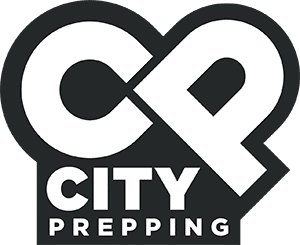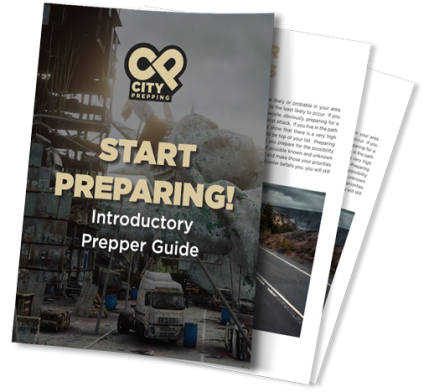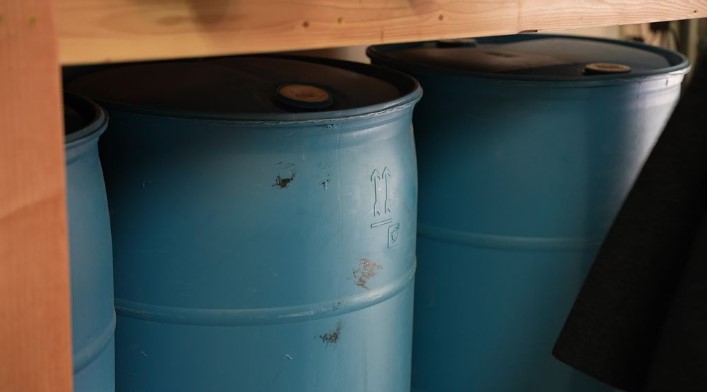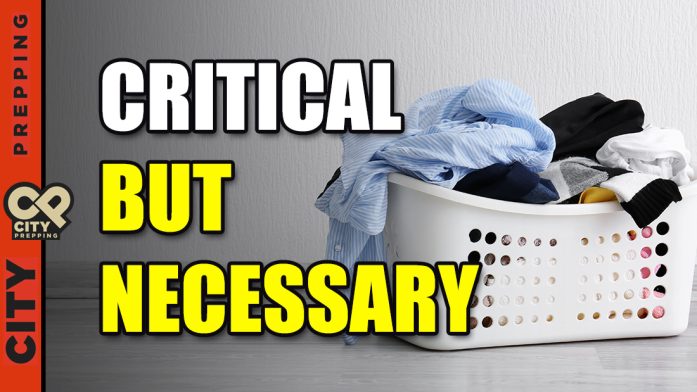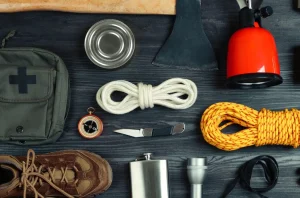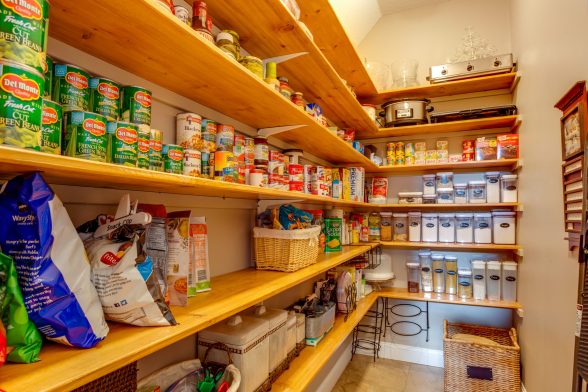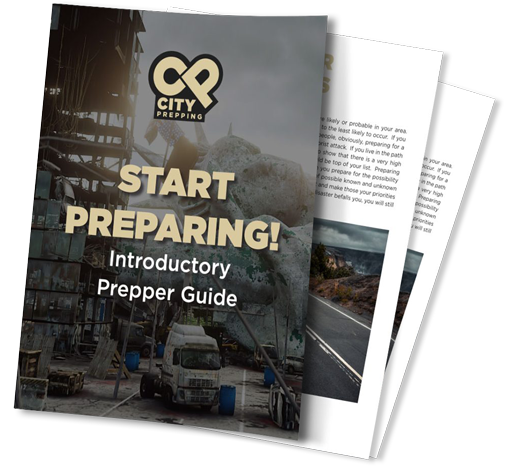What Will Happen
“A strategy is necessary because the future is unpredictable” – Robert Waterman.
We are in a global recession. There’s no denying it at this point. Some countries will recover. Before this is over, though, some countries will probably fail and not make it through. Decades of fine-tuning and throwing all our eggs in the basket of a global supply chain and modern conveniences favored over know-how and skills have weakened us and made us more vulnerable to collapse than previous generations. We are less self-suffiicent and more dependent upon grids and supply chains that are failing dramatically. Compound this with lax banking regulations, decades of loose monetary policies, extreme weather cycles and events, and unprecedented population and housing growth. It is easy to see that this global recession may be the worst and longest-lasting we have ever known.
So when will it end? Will it end or get much worse? In this blog, we will explain how long this is likely to last, the signs to watch for that it’s getting better or worse, and what you should be doing now to survive whatever fate comes your way. Let’s unpack this global recession…
Download the Prepper’s Recession Proof Economic Collapse Guide today. We’ll post a link below or visit cityprepping.com/moneyprep for a free guide to help you start recession-proofing your life and emerging even stronger when the economy recovers.
GLOBAL DISCONNECTION
 What is unique about this particular recession is its global nature introducing more unknowns. In years past, national economies functioned as somewhat isolated islands amongst the more enormous international sea. If one country’s economy faltered, it had little overall impact on another nation’s economy. Sure, there were trade agreements, trade wars, conflicts here and there, and federal banks that tried to control it all for their respective populations. There was also year after year of fine-tuning a global supply chain that brought a consumer’s every desire across the world and to their doorstep in a matter of days versus weeks or months. More and more of our local resources were brought in and shipped to us from further and further away. For instance, our beef production went from meat produced within our region or state to cattle raised in one region, slaughtered in another, frozen and shipped to an entirely different country over 6,000 miles away, processed further, refrozen, then shipped 6,000 or more miles back to us in neat plastic and styrofoam packaging.
What is unique about this particular recession is its global nature introducing more unknowns. In years past, national economies functioned as somewhat isolated islands amongst the more enormous international sea. If one country’s economy faltered, it had little overall impact on another nation’s economy. Sure, there were trade agreements, trade wars, conflicts here and there, and federal banks that tried to control it all for their respective populations. There was also year after year of fine-tuning a global supply chain that brought a consumer’s every desire across the world and to their doorstep in a matter of days versus weeks or months. More and more of our local resources were brought in and shipped to us from further and further away. For instance, our beef production went from meat produced within our region or state to cattle raised in one region, slaughtered in another, frozen and shipped to an entirely different country over 6,000 miles away, processed further, refrozen, then shipped 6,000 or more miles back to us in neat plastic and styrofoam packaging.
Another example of unsustainable resource shifts can be seen in America’s #1 imported bottled water– Fiji water. This artesian water is bottled at the source in those iconic square plastic bottles over 5,000 miles away. It is then shipped on diesel-burning cargo ships and via diesel trucks to consumers across the country. Understandably, such a system for beef, electronics, artesian water, liquified natural gas, tomatoes, cars, avocados, refrigerators, palm oil, cell phones, coffee, microchips, bananas, drywall, oranges, and other products and foods is fragile and susceptible to collapse. It is far from the shorter trip of the past where the local farm or garden was your resource.
So, when we ask ourselves how long this downward economic cycle will last compared to similar events in the past, we have first to understand how we are in uncharted territory. Every day for the last several decades, we have become increasingly more dependent upon resources further and further away from us. When these systems collapse, as we saw with the container ship getting stuck in the Suez, the pandemic shutdowns, the invasion of Ukraine, droughts in some places and floods in others, inflation and product scarcity, we are propelled further into uncertainty. Every year that has gone by, governments have failed to reign in financial systems that repeatedly fail. Now, the China Evergrande Groups default has global implications that make the Greek government’s debt crisis of 2009 seem like merely a bump in the road. Any downward economic cycle, especially a global one, will have deeper troughs than any that have occurred before.
HOW LONG CAN THIS GO ON?
 That said, let’s ask the question, “How long can this go on?” You will have to be pretty removed from it all if you haven’t felt the inflation or scarcity of products. You will have to be pretty self-sufficient if you haven’t felt the pinch at the pumps, the increase in your utility bills this summer, or more of your earned money going out and fewer resources coming into your home. There are only two possible outcomes of any recession or economic depression. Either there is a recovery or the government and currency collapse, in which case it is often replaced with a new regime and new currency. Prepping can ease your path through either of those instances. Most recessions or economic depressions result in a recovery. The average length of recessions going all the way back to 1857 is less than 17.5 months. With that average, our current recovery won’t come at even the best pace before January of 2024. The most prolonged recession in US history was 65 months beginning in 1873. The Great Depression lasted 43 months– just shy of four years. The US, as a country and an economy, still exists despite these two events. That isn’t to say that it always will.
That said, let’s ask the question, “How long can this go on?” You will have to be pretty removed from it all if you haven’t felt the inflation or scarcity of products. You will have to be pretty self-sufficient if you haven’t felt the pinch at the pumps, the increase in your utility bills this summer, or more of your earned money going out and fewer resources coming into your home. There are only two possible outcomes of any recession or economic depression. Either there is a recovery or the government and currency collapse, in which case it is often replaced with a new regime and new currency. Prepping can ease your path through either of those instances. Most recessions or economic depressions result in a recovery. The average length of recessions going all the way back to 1857 is less than 17.5 months. With that average, our current recovery won’t come at even the best pace before January of 2024. The most prolonged recession in US history was 65 months beginning in 1873. The Great Depression lasted 43 months– just shy of four years. The US, as a country and an economy, still exists despite these two events. That isn’t to say that it always will.
Populations, economies, and nation-states increase and decline. Every culture at the apex of its development thought it was superior to every culture that collapsed before. It believed it could grow and expand forever and outlast the countless empires that proceeded it. Yet, history tells a different tale. There are specific signs to watch to help you determine if you are on the road to recovery or racing down a road towards a larger civilization or societal collapse. The fall of complex society resulting in the loss of cultural identity, socioeconomic complexity, the downfall of all sanctioned government structures, and a significant rise in lawlessness and violence are all the worst possible outcomes.
So, while there will be a recovery phase at some point, it may not be as wonderful as you hope it to be. Here are a few signs to watch that will help you determine which road you are on.
UTILITY FAILURES
 One of the first things to go when heading toward a more significant societal collapse is the reliable services we have come to depend upon. We only really contemplate how dependent we are upon gas, water, electricity, sewer, trash, and even internet providers when the ever-increasing bill arrives. The bill is actually one of the first warning signs that greater failures may be on the horizon. Mismanagement of the grid by commercial, for-profit providers often pushes needed repairs and maintenance to the side. Sometimes, as with the California wildfires, the utility company’s failures to protect lines from high winds get passed along to the consumer as an added expense. Even without such a blatant cost transfer to consumers, the inclination to keep profits up often comes at the expense of expenditures on maintenance and new services. The Texas winter power failure of 2021 resulted from failing to insulate equipment determined to be at risk when winter rolling blackouts had occurred in 2011– a decade before.
One of the first things to go when heading toward a more significant societal collapse is the reliable services we have come to depend upon. We only really contemplate how dependent we are upon gas, water, electricity, sewer, trash, and even internet providers when the ever-increasing bill arrives. The bill is actually one of the first warning signs that greater failures may be on the horizon. Mismanagement of the grid by commercial, for-profit providers often pushes needed repairs and maintenance to the side. Sometimes, as with the California wildfires, the utility company’s failures to protect lines from high winds get passed along to the consumer as an added expense. Even without such a blatant cost transfer to consumers, the inclination to keep profits up often comes at the expense of expenditures on maintenance and new services. The Texas winter power failure of 2021 resulted from failing to insulate equipment determined to be at risk when winter rolling blackouts had occurred in 2011– a decade before.
However, these minor failings are amplified in the throes of an economic collapse. Maintenance and repair fall to the wayside simultaneously as pirating of utilities, and usage-induced breaks occur. A simple pipeline burst may stop the delivery of municipal water to millions. It might also not get repaired for days, weeks, months, or ever again. A downed powerline during an economic collapse could plunge millions into darkness and leave them without the ability to regulate their environment. It also might go unrepaired for days, weeks, months, or ever again. An alternative power supply, methods of disposing of human waste and trash, non-perishable shelf-stable foods, and even water will help insulate you from some utility failings.
Watch your utilities as an indicator of whether things are getting better or about to get worse. The more stories you see about these essential services failing, the more likely you are on the road to even worse times.
CRIME & CIVIL UNREST
 When the power goes out, many will see this as an opportunity, and looting, robbery, civil unrest, and vigilantism will occur. Crime increases as people become more desperate. Add to this the profound political divisions, the easy spread of misinformation by algorithms on the internet, hyper-partisan rhetoric, and the foundational principles of governance are in jeopardy. There’s a very fine line between a protest and a riot. There’s a fine line between vigilante justice and a violation of rights. If you see these lines getting blurred, divisions intensifying, spikes in the crime rate, and civil conflicts while you are in a seemingly endless recession, your country is likely heading into a far more profound financial and cultural crisis. At best, that will mean an economic depression. At worst, it could mean your government and country as you have known it is on the cusp of a significant change.
When the power goes out, many will see this as an opportunity, and looting, robbery, civil unrest, and vigilantism will occur. Crime increases as people become more desperate. Add to this the profound political divisions, the easy spread of misinformation by algorithms on the internet, hyper-partisan rhetoric, and the foundational principles of governance are in jeopardy. There’s a very fine line between a protest and a riot. There’s a fine line between vigilante justice and a violation of rights. If you see these lines getting blurred, divisions intensifying, spikes in the crime rate, and civil conflicts while you are in a seemingly endless recession, your country is likely heading into a far more profound financial and cultural crisis. At best, that will mean an economic depression. At worst, it could mean your government and country as you have known it is on the cusp of a significant change.
CAPITAL RESTRICTIONS
 The first thing governments and central banks attempt to do when their respective economies are in freefall are to tighten the restrictions and slow the flow of money and transactions. Before a total currency collapse, regime change, and recession phase, capital controls are often imposed to restrict or prohibit transferring or personally taking money, securities, or other valuables out of a country. To end hyperinflation, a new currency is typically issued. The old currency is often not worth exchanging for new. This is the far extreme like we historically have seen examples of in the Weimar Republic of Germany from 1919 to 1933. Our world is different than that historic collapse of nearly a century ago. Still, if you see interest rates continuing to rise, withdrawal restrictions, restrictions on cryptocurrencies and precious metals, an intentional effort to slow or stop the flow of foreign money, increasing taxes or tariffs, or other capital restrictions and controls, you are still deep in a recession. You could be heading toward an unrecoverable collapse if you see many of these capital restrictions and controls implemented but no fundamental changes in your economy.
The first thing governments and central banks attempt to do when their respective economies are in freefall are to tighten the restrictions and slow the flow of money and transactions. Before a total currency collapse, regime change, and recession phase, capital controls are often imposed to restrict or prohibit transferring or personally taking money, securities, or other valuables out of a country. To end hyperinflation, a new currency is typically issued. The old currency is often not worth exchanging for new. This is the far extreme like we historically have seen examples of in the Weimar Republic of Germany from 1919 to 1933. Our world is different than that historic collapse of nearly a century ago. Still, if you see interest rates continuing to rise, withdrawal restrictions, restrictions on cryptocurrencies and precious metals, an intentional effort to slow or stop the flow of foreign money, increasing taxes or tariffs, or other capital restrictions and controls, you are still deep in a recession. You could be heading toward an unrecoverable collapse if you see many of these capital restrictions and controls implemented but no fundamental changes in your economy.
SUPPLY CHAIN FAILURES
 We spend a significant amount of time on this channel addressing the fragility of the supply chain. We discussed this earlier in this blog, so we will only say here that as food scarcity sets in and shelves become more barren, you are definitely heading down a darker road. You are not in a recovery phase. Keep an eye on not only the price of things but decreases in variety and selection. Pay particular attention to anything that retailers are first having a hard time keeping in supply and then just can’t get in stock at all. If you see a few sparse things here and there, you are probably okay. When businesses start closing their doors or adjusting their hours because of low inventories, you are likely in store for a darker fiscal future ahead.
We spend a significant amount of time on this channel addressing the fragility of the supply chain. We discussed this earlier in this blog, so we will only say here that as food scarcity sets in and shelves become more barren, you are definitely heading down a darker road. You are not in a recovery phase. Keep an eye on not only the price of things but decreases in variety and selection. Pay particular attention to anything that retailers are first having a hard time keeping in supply and then just can’t get in stock at all. If you see a few sparse things here and there, you are probably okay. When businesses start closing their doors or adjusting their hours because of low inventories, you are likely in store for a darker fiscal future ahead.
LARGE SCALE MIGRATIONS
 Any large-scale migrations are the absolute worst sign that your country’s recession is about to head towards a dark depression. War and natural disasters are typical causes of large-scale migrations, and these can still occur to compound the problem. As a recession deepens and depression or societal collapse looms on the horizon, migrations are to habitable zones where work can be had. Right now, these migrations tend to be behind the scenes. The pandemic resulted in many exploring alternate work systems like working from home or changing careers. The Great Resignation, as it is being termed, is a migration away from typical work. At the same time, businesses are exploring new ways to keep profits up while they provide servicers amidst shortages of materials, shipments, and labor. On a smaller scale, these migrations are happening. An indicator that your country is on the road leading away from recovery will be when these smaller migrations take on a physical form. As during the Great Depression, when thousands headed West in search of jobs and the Conservation Corps was established, similar population moves or government actions are a sign that it’s getting worse and not better.
Any large-scale migrations are the absolute worst sign that your country’s recession is about to head towards a dark depression. War and natural disasters are typical causes of large-scale migrations, and these can still occur to compound the problem. As a recession deepens and depression or societal collapse looms on the horizon, migrations are to habitable zones where work can be had. Right now, these migrations tend to be behind the scenes. The pandemic resulted in many exploring alternate work systems like working from home or changing careers. The Great Resignation, as it is being termed, is a migration away from typical work. At the same time, businesses are exploring new ways to keep profits up while they provide servicers amidst shortages of materials, shipments, and labor. On a smaller scale, these migrations are happening. An indicator that your country is on the road leading away from recovery will be when these smaller migrations take on a physical form. As during the Great Depression, when thousands headed West in search of jobs and the Conservation Corps was established, similar population moves or government actions are a sign that it’s getting worse and not better.
WHAT SHOULD YOU BE DOING NOW?
 Watch the signs of intensifying utility failures, increases in crime and civil unrest, capital restrictions, supply chain failures, and large-scale migrations, all while you get prepped. Your preps now are the key to surviving regardless of your country’s path. If your country moves to a recovery phase and events around the world stabilize somewhat, your preps will sustain you through the remainder of the downward cycle and aid you in recovery. If your country sinks further into economic despair and succumbs to an onslaught of progressively worsening situations, your preps will sustain you through all the failures and help you to at least rebuild your own life.
Watch the signs of intensifying utility failures, increases in crime and civil unrest, capital restrictions, supply chain failures, and large-scale migrations, all while you get prepped. Your preps now are the key to surviving regardless of your country’s path. If your country moves to a recovery phase and events around the world stabilize somewhat, your preps will sustain you through the remainder of the downward cycle and aid you in recovery. If your country sinks further into economic despair and succumbs to an onslaught of progressively worsening situations, your preps will sustain you through all the failures and help you to at least rebuild your own life.
Fundamentally, you must first get your water and food supplies in order. We constantly hear from subscribers who survived the sudden loss of a job and income because they were able to feed their families with their preps. We also hear from people who survived floods, tornadoes, even the Texas winter power outage because they had taken steps to prepare for disasters. It can be a big or personal disaster, and your preps will see you through. It can be a minor recession or a total societal and monetary collapse, and your preps will determine how you make it through. Chief among those preps is your food and water. Fundamental to you is how independent you can be of utility failings and food supply chain failures. If the grocery stores are empty or the water stops flowing to you, how long can you make it on your own?
Once the two primary components of food and water are somewhat squared away, you should be critically examining your energy dependence, your personal fiscal dependence, your personal security and shelter security, and your own plans to bug in or bug out. If you can examine all of these critical components and prep to strengthen them, a recession or economic collapse will less impact your survival. Sure, it will drastically change the way you have to live, but when your preps are integrated into your current life and not just tucked away on a shelf somewhere in your garage, you’re going to be okay.
It’s those who have no preps, no garden or grow nothing, no food set aside, no water, and so forth; those who are solely dependent on global systems functioning flawlessly who are really going to struggle and will eventually become desperate.
Nobody can really tell with any certainty where we will be in a year from today. With any economic downturn, there will be winners and losers after it is all over. Even economists contradict each other, while federal banks move solidly to a defensive posture and GDPs worldwide plummet. That will all happen regardless of what you do today, but what you do today to prep is truly what will determine where you are standing when the dust eventually does settle. As we said, recessions have two outcomes– either your economy begins to recover in an average of 17.5 months from the start, or your economy starts accelerating downward towards a more profound and deeper collapse. Prepping allows you to navigate better both possible outcomes.
We would invite you to look at some of our other blogs on prepping a year’s supply of food or water storage or energy solutions, and we will link to those from this blog. We can say with absolute certainty that we are still in the early stages. Yes, as bad as it may seem now and as high as prices are currently, I firmly believe that this is just the beginning of much worse to come. Even economists are reluctant to predict a recovery date. Prep now while you still have the time and resources and learn to incorporate that preparedness into your daily life. You will be thankful you did.
As always, stay safe out there.
